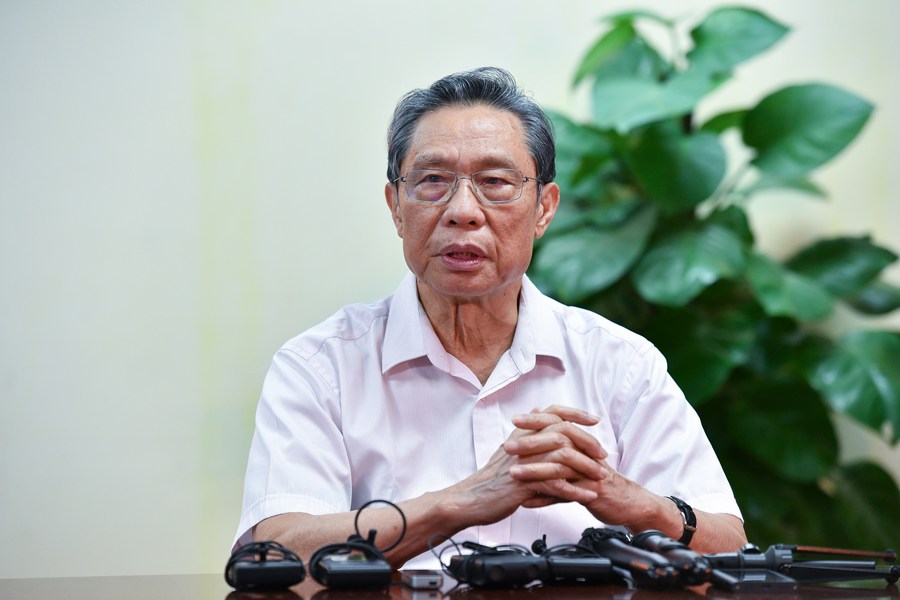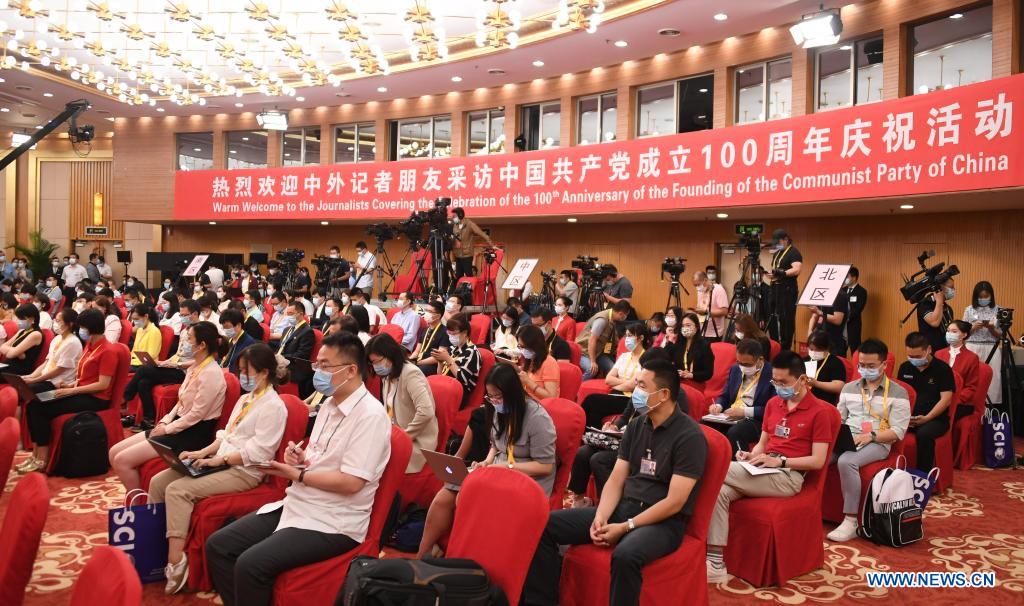
Chinese respiratory specialist Zhong Nanshan speaks in an interview in Guangzhou, south China's Guangdong Province, July 29, 2020. (Xinhua/Liu Dawei)
GUANGZHOU, June 28 -- China's top epidemiologist Zhong Nanshan said in an interview with Xinhua that building an immune barrier is urgently needed to combat the highly contagious delta variant of COVID-19.
Zhong said the resurgence of the virus in Guangzhou, capital city of south China's Guangdong Province, was the first time that China had to cope with the delta variant spreading in the community.
The variant, which was first identified in India, has a shorter incubation period than other variants and the infected individuals experience longer recovery periods.
"Guangzhou has made some achievements in combating the variant, but other regions should take necessary precautions," said Zhong.
INITIAL ACHIEVEMENTS
A total of 153 cases were reported in Guangzhou from May, but no new local cases have been reported since June 19.
The city has been removed from China's list of areas at medium-risk for COVID-19, local health officials said on Saturday.
Zhong said both provincial and city-level disease control departments carried out timely and high-quality epidemiological investigations after receiving a case report on May 21.
The gene sequencing of all 153 cases in Guangzhou has now been carried out. The results show that the cases are homologous and the transmission chain is clear. These efforts provide data support for authorities to judge the situation and implement control measures, he said.
"Considering the high viral load and highly contagious nature of the delta strain, we clarified that anyone who was in the same space, unit or buildings as a patient up to four days before the onset of the disease was a close contact," said Zhong. "Due to the change in the definition of close contacts, different management methods have been adopted."
He said that Guangzhou has used big data to track people of concern, including those who have been to medium-risk areas and close contacts of new cases.
"These new, innovative and more targeted anti-virus methods have enabled us to control the resurgence in a quick manner," said Zhong.













